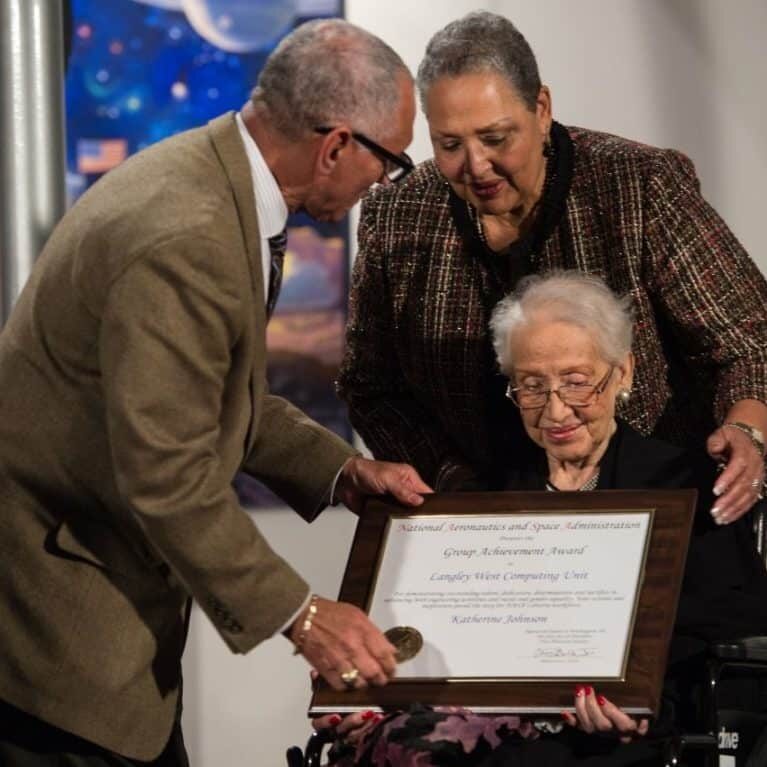One of the most inspiring things about learning now is realizing that all the knowledge we have today came from the work and understanding of seemingly countless people who came before us. In turn, what we know now will contribute to the body of knowledge those who come after us inherit.
We’ve all heard of those early, influential mathematicians like Einstein, Newton, and Pythagoras. But there are so many other fascinating humans who have contributed to mathematics as we know it today. I learned about a remarkable woman recently, and I’d like to tell you a little about her. Her name was Katherine Johnson, and her life is an extraordinary example of boundary breaking and intellectual achievement.
Katherine Johnson was an African American woman born in 1918 in West Virginia. Bright and curious, she completed high school at 14 and went on to graduate summa cum laude from West Virginia State college with a degree in mathematics at age 18. She was later selected as the only woman, and one of only three Black students, to integrate West Virginia University’s graduate program.
In the 1950s, Katherine began her career as a research mathematician, and her first jobs were in teaching. In 1953, however, she launched her career in aerospace technology at what is now known as NASA. During her long, successful career, she contributed mathematical analysis to many historic space missions including the first human space flight and the Apollo missions. Before John Glenn’s orbit of the Earth in 1962, he reportedly asked that Johnson herself double-check the computer’s calculations, saying “if she says they’re good, then I’m ready to go.”
Katherine’s career spanned 35 years. She persevered against racism and sexism to leave her mark on the field of mathematics. In 2015, President Barack Obama awarded her the Presidential Medal of Freedom. She died last year, on February 24, 2020, at the age of 101.
Math Motivators’ mission is to increase math confidence among students who need it most. Our tutors help students build their skills and confidence in mathematics, and they also serve as mentors. While the tutors may not always recognize the positive impacts they’re having on students, they can be certain that they have helped each of their students to recognize their potential and that any one of their students could one day have achievements—like Katherine Johnson—beyond their or our wildest dreams.
Categories: Blog, Math Motivators, Profiles
Tags: Human Interest

